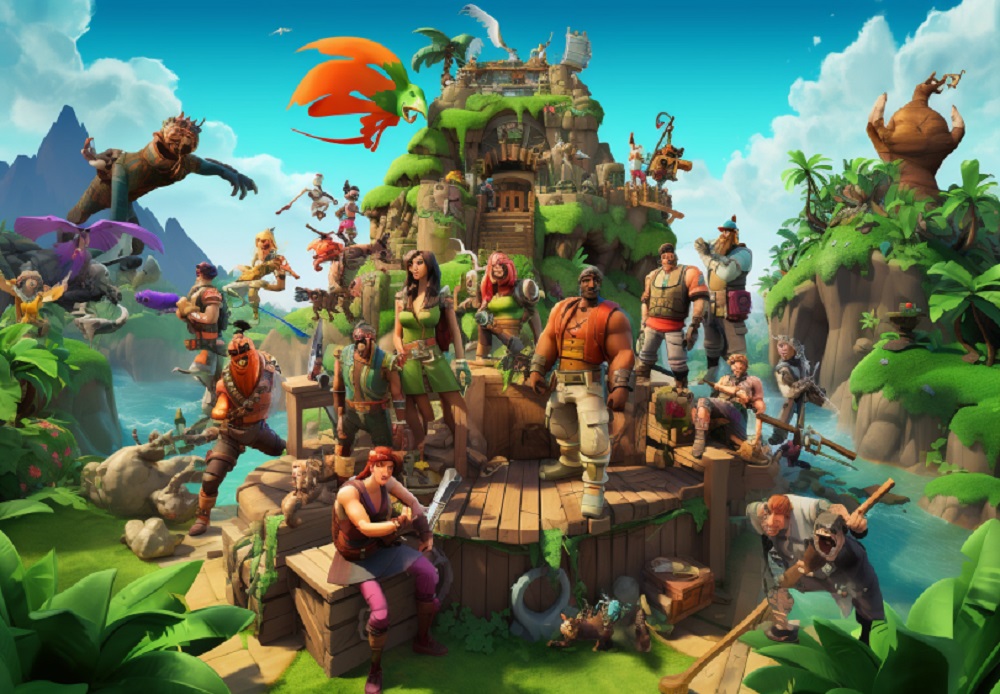67 Tips for Making Your Indie Game Stand Out
Indie game development is an incredibly competitive and constantly evolving industry. With so many games being released each year, it can be difficult to stand out from the crowd. However, with the right approach and some helpful tips, you can increase your chances of success and make your indie game stand out. In this article, we'll share 67 tips for making your indie game stand out.
1. Identify your Unique Selling Proposition (USP):
- What makes your game different and unique from others? Your USP should be something that sets your game apart from others in terms of gameplay, mechanics, art style, story, or theme.
2. Have a clear target audience in mind:
- Knowing your target audience will help you tailor your game to their interests and preferences.
3. Keep your scope realistic:
- Focus on creating a small but polished game instead of trying to make a large and ambitious game that may not be feasible for your team or budget.
4. Create a compelling trailer:
- Your trailer should showcase the best features of your game and make a strong impression on viewers.
5. Have a strong social media presence:
- Use social media platforms to promote your game and engage with potential players.
6. Attend gaming conventions and events:
- Attend industry events and conventions to showcase your game and connect with other developers and players.
7. Build a community around your game:
- Encourage players to share their feedback and experiences with your game, and foster a sense of community around it.
8. Engage with your players:
- Respond to player feedback and incorporate their suggestions into your game development process.
9. Offer early access or beta testing:
- Giving players early access to your game can help generate buzz and gather valuable feedback.
10. Create a press kit:
- A press kit should include all the necessary information and assets that journalists and influencers need to write about your game.
11. Focus on accessibility:
- Make sure your game is accessible to as many players as possible, regardless of their abilities.
12. Optimize for different platforms:
- Consider optimizing your game for different platforms such as PC, consoles, or mobile devices to reach a wider audience.
13. Polish your game's user interface:
- A polished and intuitive user interface can make a big difference in how players experience your game.
14. Create a cohesive art style:
- A cohesive art style can make your game stand out and create a memorable experience for players.
15. Invest in high-quality audio:
- High-quality audio can enhance the immersive experience of your game and leave a lasting impression on players.
16. Use humor or satire:
- Humor or satire can make your game memorable and help it stand out from other games in its genre.
17. Create a memorable protagonist:
- A memorable protagonist can help players connect with your game on a deeper level.
18. Include Easter eggs or hidden content:
- Easter eggs and hidden content can create a sense of mystery and discovery for players.
19. Offer multiple endings or paths:
- Multiple endings or paths can make your game more replayable and keep players engaged.
20. Build a strong narrative:
- A strong narrative can keep players invested in your game and create a memorable experience.
21. Utilize procedural generation:
- Procedural generation can create endless possibilities and keep players engaged with new content.
22. Create a unique multiplayer experience:
- A unique multiplayer experience can help your game stand out in a crowded market.
23. Offer modding support:
- Modding support can help extend the life of your game and foster a dedicated fanbase.
24. Provide regular updates and patches:
- Regular updates and patches can show players that you're committed to improving your game and addressing issues.
25. Use marketing analytics:
- Analyze your marketing efforts to see what's working and adjust your strategy accordingly.
26. Consider crowdfunding:
- Crowdfunding can provide funding and generate buzz for your game.
27. Collaborate with other developers:
- Collaborating with other developers can help you share resources, knowledge, and expertise, and create better games.
28. Use influencer marketing:
- Partner with influencers to promote your game and reach a wider audience.
29. Participate in game jams:
- Participating in game jams can help you hone your skills and create a portfolio of games.
30. Create a demo:
- A demo can give players a taste of your game and help generate interest.
31. Offer a free-to-play version:
- A free-to-play version can help attract players who may not be willing to pay upfront for your game.
32. Use user-generated content:
- User-generated content can help extend the life of your game and foster a dedicated fanbase.
33. Utilize gamification:
- Gamification can make your game more engaging and create a sense of progression for players.
34. Focus on player experience:
- The player experience should be at the center of your game development process.
35. Offer accessible pricing:
- Pricing your game competitively can help make it more accessible to a wider audience.
36. Utilize viral marketing:
- Viral marketing can help your game go viral and generate buzz.
37. Leverage nostalgia:
- Nostalgia can be a powerful tool in creating a memorable and engaging game.
38. Create a memorable soundtrack:
- A memorable soundtrack can help create a unique and immersive experience for players.
39. Offer customization options:
- Customization options can help players personalize their experience and create a sense of ownership.
40. Create a strong brand:
- A strong brand can help your game stand out in a crowded market and create a loyal fanbase.
41. Use data analytics:
- Analyze player behavior and engagement to improve your game and make data-driven decisions.
42. Use humor or satire:
- Humor or satire can make your game memorable and help it stand out from other games in its genre.
43. Collaborate with influencers or brands:
- Collaborating with influencers or brands can help you reach a wider audience and generate buzz.
44. Participate in online communities:
- Participating in online communities can help you build relationships with players and get valuable feedback.
45. Leverage user-generated content:
- User-generated content can help extend the life of your game and foster a dedicated fanbase.
46. Use data-driven design:
- Use data analytics to inform your design decisions and create a game that resonates with players.
47. Create a memorable title:
- A memorable title can help your game stand out and create a strong first impression.
48. Optimize for search engines:
- Optimize your game's website and social media pages for search engines to improve your discoverability.
49. Use emotional storytelling:
- Emotional storytelling can create a deeper connection between players and your game.
50. Offer a unique game mechanic:
- A unique game mechanic can create a memorable and engaging gameplay experience for players.
51. Create a strong brand identity:
- A strong brand identity can help your game stand out and create a loyal fanbase.
52. Offer cross-platform compatibility:
- Cross-platform compatibility can help your game reach a wider audience.
53. Use social proof:
- Use social proof such as reviews and testimonials to build trust with potential players.
54. Collaborate with streamers:
- Collaborating with streamers can help you reach a wider audience and generate buzz.
55. Use gamified tutorials:
- Gamified tutorials can make the learning process more engaging and enjoyable for players.
56. Offer in-game rewards:
- In-game rewards can incentivize players to continue playing and provide a sense of progression.
57. Use humor in marketing:
- Humorous marketing can create a memorable and engaging campaign for your game.
58. Create a memorable art style:
- A memorable art style can help your game stand out and create a unique experience for players.
59. Offer a unique setting or world:
- A unique setting or world can help your game stand out and create a sense of immersion for players.
60. Use humor in your game:
- Humor can make your game more enjoyable and memorable for players.
61. Optimize for mobile:
- Consider optimizing your game for mobile devices to reach a wider audience.
62. Create a unique enemy or antagonist:
- A unique enemy or antagonist can create a memorable gameplay experience for players.
63. Use storytelling in marketing:
- Use storytelling in your marketing efforts to create a connection with potential players.
64. Offer a challenge:
- A challenging game can create a sense of accomplishment and keep players engaged.
65. Use viral memes:
- Viral memes can help your game go viral and create buzz on social media.
66. Create a unique art direction:
- A unique art direction can help your game stand out and create a memorable experience for players.
67. Have fun and be creative:
- Don't be afraid to experiment and try new things. The most successful indie games often come from unique and creative ideas.
Finally, making your indie game stand out can be a daunting task, but with these tips, you can increase your chances of success. By identifying your unique selling proposition, creating a strong brand identity, and engaging with your players, you can create a memorable and engaging game that stands out in a crowded market. Remember to stay true to your vision and have fun along the way. With the right approach, your indie game can be the next big hit.






